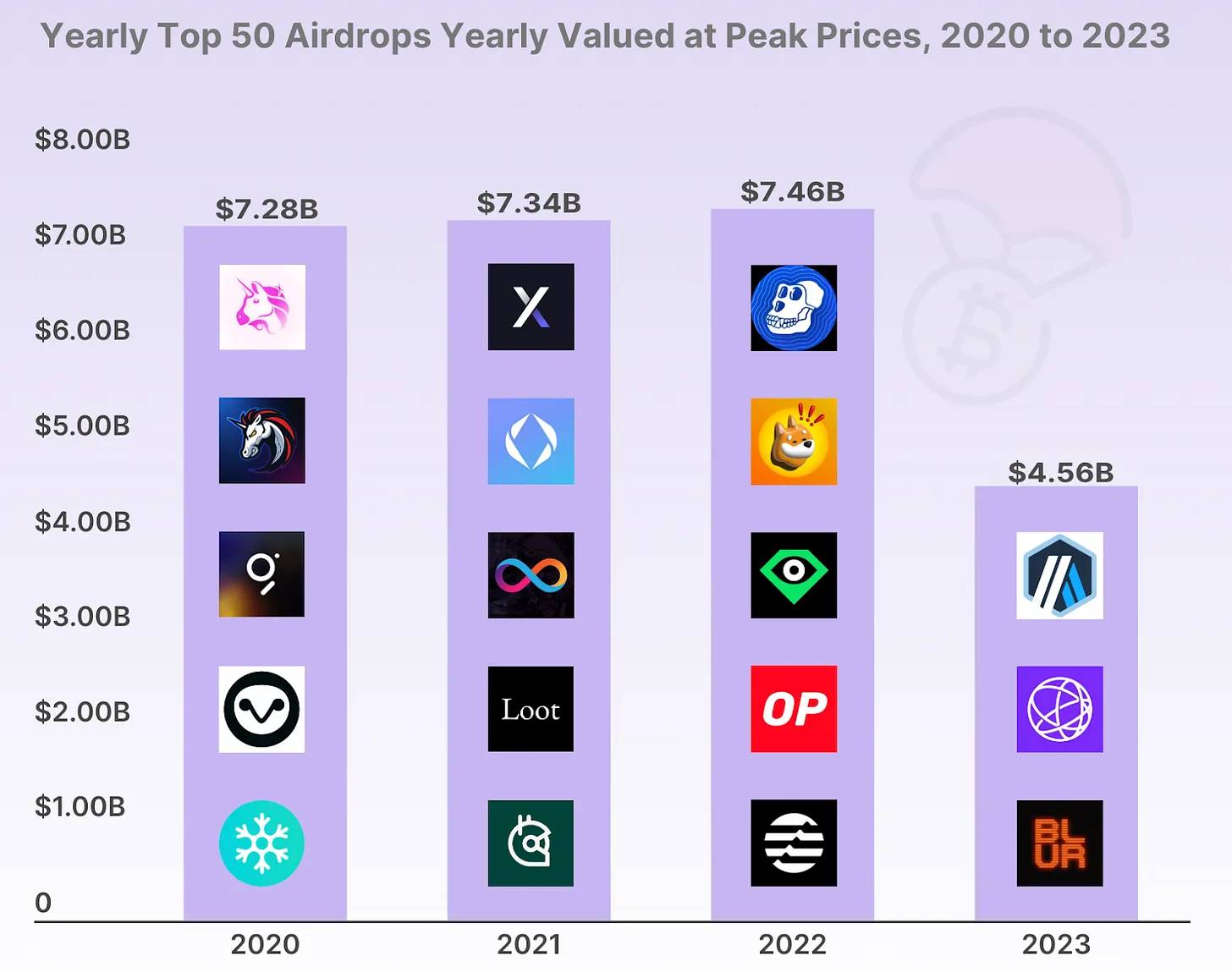Author: Happy
Compiled by: Deep Tide TechFlow

The price of Bitcoin has surpassed $100,000; we have a president who supports cryptocurrency, yet strangely, everyone seems to be angry.
The Overton Window has undergone a complete change. This time, things are indeed different, but not in the way we expected.
Trump's presidency has brought a perplexing dilemma—what does this mean for my digital assets? Countless thoughts flooded my mind.
On one hand, he is the most powerful person in the world, publicly "promoting" our cryptocurrency.
On the other hand, he has used his power and influence to launch meme coins that dilute market value, profiting his family while attempting to maximize capital extraction in this field.
Reality is often stranger than fiction.
Looking back at the history of Bitcoin, supporters initially designed a game theory plan predicting how Bitcoin would gradually take over the world. They believed that the government would first oppose us, but ultimately we would prevail. On the surface, this seems to have come true.
Bitcoin has indeed won. It has transformed from being seen as "the money of evil people used to fund illegal activities" to "money of freedom," now accepted and promoted by the most powerful institutions, individuals, and even countries in the world.
Celebrities like Larry Fink, Donald Trump, Stanley Druckenmiller, Ray Dalio, and Elon Musk have all expressed positive views on Bitcoin at some point. This stands in stark contrast to a decade ago when Bitcoin's only use might have been to buy a pizza or to have environmental protesters glue themselves to your driveway, accusing you of "destroying the planet."
However, for those who spend 16 hours a day staring at computer screens, chatting with friends online, and speculating wildly on virtual currencies: I feel the future may become even stranger and more difficult.
Throughout the history of cryptocurrency development, we have been imagining the changes that these technologies might bring in the "future." "The whole world will be on-chain," "everyone will trade with stablecoins," "NFTs will replace physical art," "decentralized finance (DeFi) will replace traditional banking systems."
But historically, these visions have never truly materialized. The technology is not yet mature, and governments are hostile towards this field. They would prefer we did not exist, and will use various means to suppress us.
As a result, many teams have had to focus their efforts on designing products that can both evade legal risks and maximize coin prices. Meanwhile, designs that genuinely prioritize user experience have long been relegated to the bottom of the priority list.
To some extent, this situation is indeed very favorable for us internet geeks. To boost coin prices and evade legal risks, a major strategy adopted by many project teams is to distribute tens of thousands of dollars in "free funds" directly to people like us through airdrops.

According to CoinGecko's statistics, the total amount of the top 50 airdrops has reached $26 billion.
Since the environment at the time made it nearly impossible to produce truly high-quality products, we pretended that these projects had achieved their goals and valued them accordingly.
Thus, we witnessed many strange phenomena: a Layer 1 with no users valued higher than most traditional tech companies; "Ponzi stablecoins" relying on new capital injections to maintain value valued even higher than the GDP of some countries; the trading price of ape images even exceeding that of some real estate.
What I want to express is that the entire foundation of this cryptocurrency industry is built on a seriously flawed incentive mechanism.
In this system, merely talking about building something is as easy to get rich as actually building it. While many of us criticize this phenomenon, we also directly benefit from it.
However, I believe this situation may soon change.
With the emergence of supportive government and regulatory policies for cryptocurrency, we finally have the opportunity to design serious, practical products for those who truly need them.
This is great news for the entire industry, but I cannot predict what it means for us "speculators."
In a world where legal clarity drives true innovation, will innovators continue to give us "free funds" through airdrops?
When the legal environment becomes clearer, will more professionals enter the on-chain ecosystem, thereby weakening the current "speculative spirit"?
If crypto projects achieve technological breakthroughs and attract "real users," what fate awaits those applications that still have no users?
If the government shifts from hostility to support, will we blindly turn to using more centralized blockchains?
When the barrier to creating tokens drops to zero, will all tokens be diluted and lose value as a result?
As higher-quality applications continue to emerge, will we see a flood of actual users entering the on-chain economy and spending money? Will this money remain on-chain long-term, or will it be withdrawn back into the traditional economy?
Ultimately, will we move towards a Web 2.0-like situation—where a few companies make all the money while other projects seem insignificant in comparison?
Does your family's future really depend on whether you bought those seven coins? If you miss them, will you be doomed to poverty for holding Ethereum too long?
Will Michael Saylor impulsively sell (FSH) all his Bitcoin (BTC)? It sounds absurd, but if it happens, we might still end up with nothing.
Will the Ethereum Foundation suddenly dissolve, leaving us to watch as Vitalik crazily creates a new blockchain with his "Milady spirit"?
What if Trump decides to launch an "American chain," airdropping tokens (Tokens) to every citizen while imposing heavy taxes on other chains and tokens?
Will these changes drive up coin prices or lead to a market crash?
Honestly, I have no answers. This may be the most confusing moment I've experienced in the past five years.
The only thing I'm sure of is that everything will change, and the cryptocurrency world four years from now will be vastly different from today.
So, how should I respond to these changes?
To be frank, I'm not smart; I've just been lucky to make some money over the past few years. Therefore, I've decided to reduce investment risks and withdraw some funds from the crypto market.
I can no longer bear to bet 95% of my net worth on those "virtual currencies," which tend to crash 95% every few years.
I really can't bring myself to tell my girlfriend that I've bet our future on Trump fulfilling his campaign promises. Before this, I had already staked everything on him winning the election.
However, I feel I might perform better in the future. After all, now I know that even if I mess up, I won't end up on the streets because I've moved some of my assets into "real assets."
At the same time, I am quite fearful of the high-level scams and phishing that may emerge this year. Now that we have AI capable of writing better content than most humans, I think it's only a matter of time before these robots are specifically designed to trick you into giving up your private keys.
To mitigate potential future risks, I am also considering hedging. Adopting a diversified strategy across multiple devices, wallets, and chains seems more important than ever, and I am using hardware wallets.
I will continue to hold all my Bitcoin (BTC). It is the only asset in the crypto space that I truly trust, and I believe Bitcoin still has tremendous growth potential in the next decade.
As for my plan, it's to adapt to circumstances and go with the flow. The future will be full of unknowns and surprises, and innovation will continue to emerge. The crypto space will see tremendous growth, bringing countless opportunities.
I hope to remain flexible. I want to hold some stablecoins to participate in all the exciting new projects—whether experimental, seemingly absurd, or those based on meme culture.
I don't want to take all of this too seriously; I want to enjoy the fun, make some money, and be happier.
That's my plan: to take profits at the right time, ensure my life remains stable, continue to HODL my Bitcoin, and then watch the changes unfold, trying to profit from the upcoming opportunities.
The future may be full of unknowns and be quite unusual, but in any case, make sure to at least enjoy it.
A final reminder: do not take this article as financial advice; I am just an ordinary person and may even be quite foolish. If you sell your coins, they might rise to a trillion dollars; if you continue to hold, they might also go to zero. So, close this page and stop looking. Don't pay attention to me; I'm just saying whatever comes to mind.
免责声明:本文章仅代表作者个人观点,不代表本平台的立场和观点。本文章仅供信息分享,不构成对任何人的任何投资建议。用户与作者之间的任何争议,与本平台无关。如网页中刊载的文章或图片涉及侵权,请提供相关的权利证明和身份证明发送邮件到support@aicoin.com,本平台相关工作人员将会进行核查。




